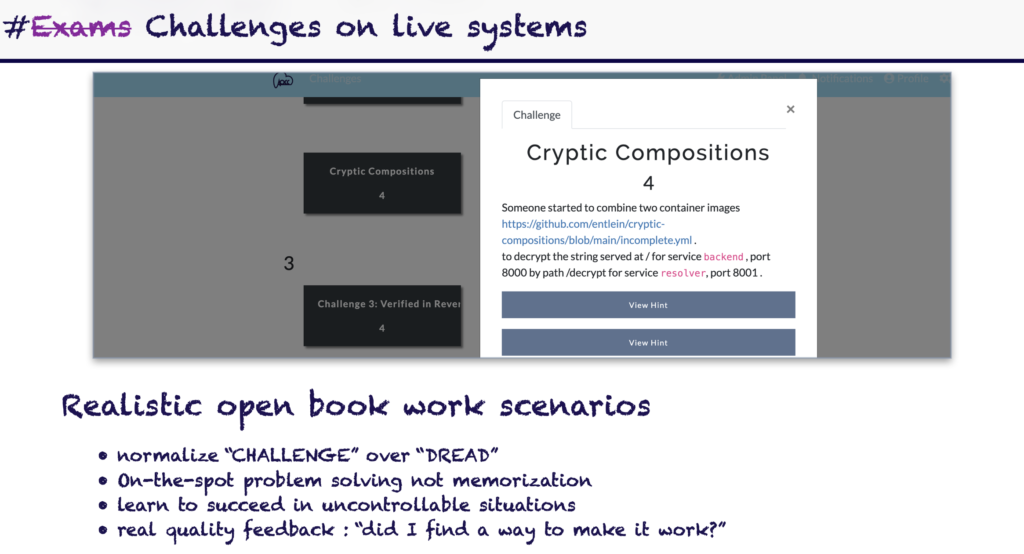TUW offered again the lecture series „Hands-On Cloud Native“ during SommerSemester 2024. Open to all Austrian Universities at the faculty for computer science during 13 four-hour lectures. Teams were able to have their own cloud accounts to build a mock startup service and pitch it to “investors” at the end of term
The past semester was filled with engaging and informative DataLAB sessions that provided participating students with practical knowledge in the fields of cybersecurity, DevOps, cloud technologies, and Kubernetes.
The sessions were designed to be accessible to a wide range of interests at medium experience levels, covering the entire lifecycle of a cloud-native service. The 43 participants were exposed to one topic per week during four-hour learning units and formed seven (mock)-startup teams who designed and built a service. This startup-service was pitched to the audience and public at the end of the semester.
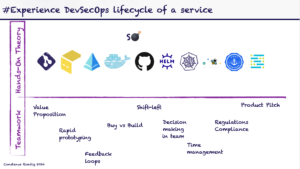
The semester’s curriculum was comprehensive, starting with the basics of containerization and Kubernetes, moving on to DevOps practices and CI/CD pipelines, and culminating in advanced Kubernetes concepts like CNI, network policies, and the integration of WebAssembly.
Here are some of the highlights from the semester:
- Cloud and DevOps Basics (LVA-1 to LVA-5): This series provided a deep understanding of cloud and container technologies. Participants learned how to create a container in Linux using three kernel primitives, the use of “Infrastructure as Code”, explored the principles of “fail-fast” and “value creation”. Special focus was on human-centered value creation and how to leverage automation to incorporate early user feedback.
- Kubernetes Series (LVA-6 to LVA-10): This series offered a comprehensive exploration of container orchestration with Kubernetes. Participants gained hands-on experience developing and deploying their own applications using Kubernetes. During this block, we were joined by two renowned experts:
Visiting us from Zurich, Vadim Bauer (core maintainer of the CNCF project Harbor) covered all topics around registries and artifacts. He taught us the architecture of Harbor, the importance of the OCI standard, how to use a registry appropriately and how to scan and sign images for security. He also elaborated on what it means to be a maintainer and the importance of community. It was thus appropriate when he explained what the CNCF Mentorship Programme provides and how to apply.
A spontaneous and very welcome guest was Nicolas Vibert (network expert for the CNCF project Cilium) with whom we covered Kubernetes Networking, the differences between CNIs and discussed about the future of gateways. His dedicated hands-on labs were highly appreciated in this wide and difficult subject. - Security and Zero Trust: This session went beyond technical implementation, highlighting the distinction between compliance and governance and discussing the implications of new regulations like NIS-2 and CRA.
- The session “Observability” was about measuring what matters. Andreas Grabner (CNCF Ambassador, Maintainer of CNCF project Keptn and DevOps Activist) showed concrete examples of large corporations: how to measure in modern technology, how e.g. a (sub)-process can be too expense, too slow etc and what consequences this may have along the entire value-chain up to the point, where the trunk of your car will open (or not). In a DevContainer all participants got to deploy services via ArgoCD and to find out step-by-step how their Observability was composed and constructed.
- WebAssembly (WASM): The New Little Sister of Kubernetes? This session shed light on the future of cloud technologies, highlighting the potential of WebAssembly within the Kubernetes/CloudNative/AI ecosystem.
CTFs (Live Scavenger Hunt in the Cloud) as exams :
Participants had the opportunity to test their skills and knowledge through Capture the Flag (CTF) challenges, which served as both an exam and an admission test. These live scavenger hunts in the cloud provided a fun and engaging way to apply the concepts learned throughout the semester.
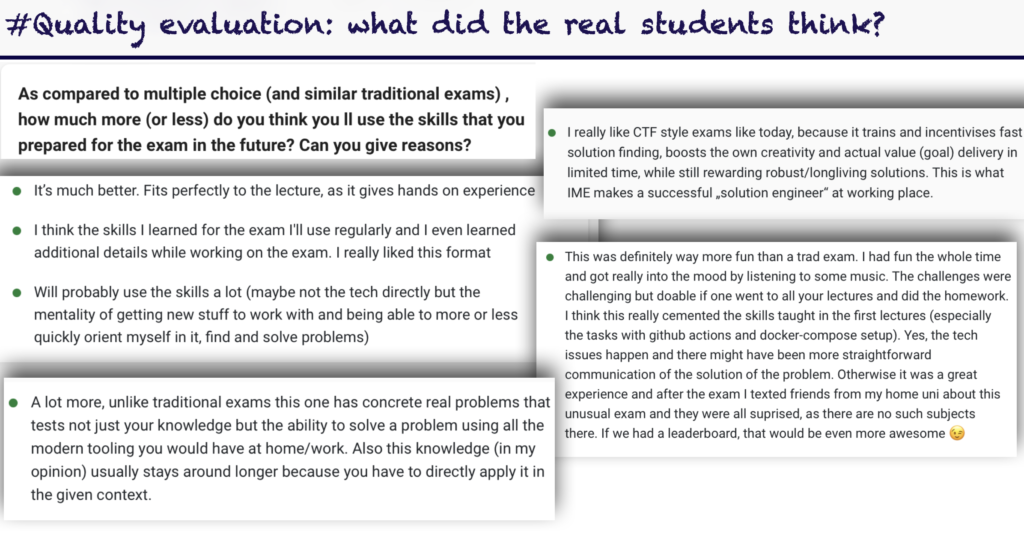
Startups as homework :
The instructor really believes in learning by doing, so as to adequately calibrate the difficulty of a problem and the level of understanding. “Playful learning” for all parties involved was thus the key idea behind each team founding their own startup. The first 3 weeks, during which we covered cloud and container basics, were all about discovering the Value Proposition and sketching out how their team would build the service over the following 10 weeks.
Here, we see an example taken from the “ML-as-a-service” startup:
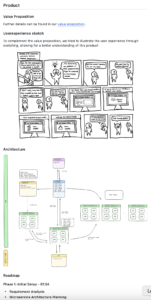
All startup code is available under our GitHub organization https://github.com/AustrianDataLab . The following seven Startups were presented, built and pitched to much applause of the audience:
- GeWoScout: https://github.com/AustrianDataLAB/GeWoScout “Find your Dream-Genossenschaftswohnung”
- Bakery-as-a-Service: https://github.com/AustrianDataLAB/bakery_as_a_service “B2B Bakery services”
- Be-Meal: https://github.com/AustrianDataLAB/BeMeal “Eat Healthy”
- IndieGameStream: https://github.com/AustrianDataLAB/IndieGameStream “Independent cloud gaming platform”
- ML-as-a-Service: https://github.com/AustrianDataLAB/ml-as-a-service “Machine learning for non-experts”
- OpenOnDemand for HPC: https://github.com/AustrianDataLAB/terraform-deployment-automation “Deploy OpenOnDemand on OpenStack for HPC”
- Natural Disaster Aid: https://github.com/AustrianDataLAB/platform-natural-disaster-aid “Platform for Natural Disaster Aid”
Currently, we plan to offer this LVA in slightly more standardized form, en-blocke, at TU Wien (operated by the Austrian Open Cloud Community ) open for students of all Austrian universities, details will be announced in TISS.
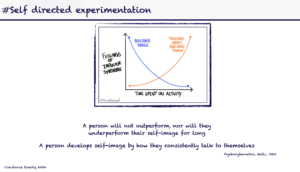
Great many thanks for our three guests: Vadim Bauer, Nicolas Vibert and Andreas Grabner. Your concrete and deeply technical insights were highly instructive. As well as your willingness to be points of contact for the next generation into the world of cloud-native.
Rückfragehinweis/Lecturer:
Dr. Constanze B. Roedig
VSC Research Center, Austrian Open Cloud Community
+43 664 60588 6543
constanze.roedig@tuwien.ac.at


